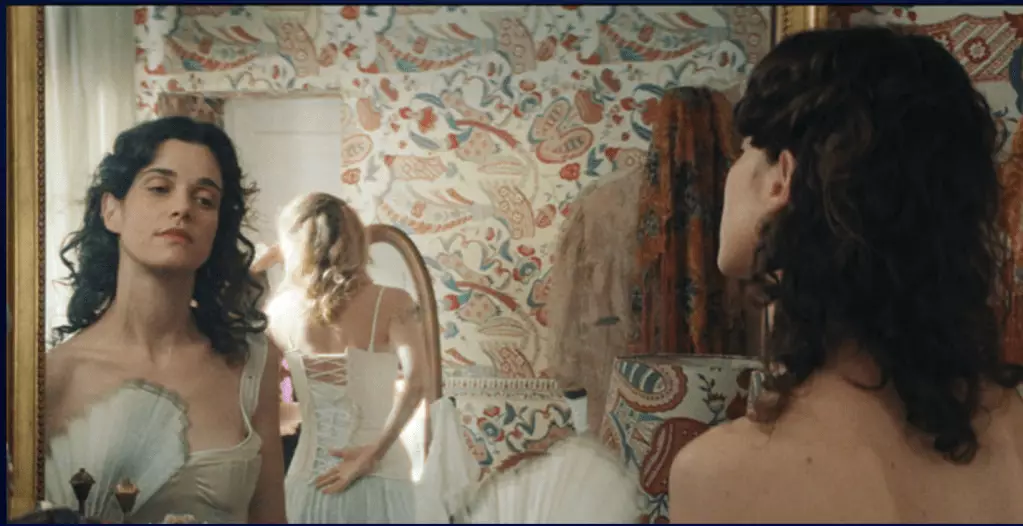It’s remarkable how a novelist who penned her works over two centuries ago can still capture the hearts of modern audiences. Jane Austen continues to thrive, as evidenced by the surprising success of “Jane Austen Wrecked My Life.” This clever homage to the famed author has not only performed well at the box office but is also receiving critical acclaim. With a stellar 87% rating on Rotten Tomatoes, it’s evident that Austen’s brand remains powerful, even in a world filled with fast-paced action and digital distractions. Audiences are not just revisiting her novels; they are seeking them out in cinemas. The notion that her insights into human relationships and societal norms are still resonant today suggests an enduring relevance that transcends time.
The Power of Faith-Based Cinema
Another indie film making waves is “The Last Rodeo” from Angel Studios. This film, estimated to gross over $5 million over Memorial Day weekend, demonstrates that faith-based narratives have a strong place in today’s cinematic landscape. In an era where moral ambiguity has become the norm, audiences are yearning for stories grounded in values and human connection. The lead character’s journey—balancing his legacy as a rodeo star while risking everything for his family—invokes traditional themes of sacrifice and courage. It’s a refreshing counter-narrative to the sensationalism often found in mainstream cinema, appealing to those seeking heartfelt storytelling.
Suburban Dads and Bromances Gone Wrong
Furthermore, “Friendship,” starring Tim Robinson and Paul Rudd, taps into the comedic genre that doesn’t shy away from exploring the complexities of male relationships. This film’s rise in popularity illustrates a growing appetite for authentic, relatable content. The exploration of a bromance gone awry invites viewers to reflect on their friendships and societal expectations surrounding masculinity. It adds a layer of nuance and insight that many mainstream comedies tend to overlook. As audiences respond positively with high ratings and increasing box office gross, it reinforces the idea that storytelling—whether drama or comedy—can still evoke genuine emotion and connection.
A Broader Spectrum of Narratives
Moreover, the indie scene is an important counterweight to commercial cinema’s trend of sequels and franchise-building. Films like “Bad Shabbos” may not take the box office by storm, but they contribute to the broader spectrum of narratives available to viewers. Each film, regardless of its financial success, adds to the rich tapestry of storytelling, allowing more voices to be heard. This democratization of cinema is essential and highlights that the indie landscape is not solely about box office numbers but about diverse storytelling that challenges mainstream ideologies.
The Appeal of Globalism
As evident from the ongoing popularity of Austen adaptations and worldwide box office phenomena, the globalization of storytelling cannot be ignored. Movies that incorporate cross-cultural elements or resonate universally maintain the ability to attract diverse audiences. The modern film-goer seeks more than just entertainment; they crave shared experiences and cultural explorations. This global appeal opens doors for independent filmmakers to create narratives that may not align with traditional Hollywood formulas yet profoundly resonate with viewers.
The Role of Social Media and Word-of-Mouth
In the age of social media, the value of word-of-mouth has never been more pronounced. The success of “Friendship” can be attributed in part to the viral nature of social platforms, where fans share their experiences and recommendations. It’s a testament to the relatability of indie films. Audiences are quick to champion projects that align with their sensibilities, showcasing the power of community-driven recommendations. As people crave authenticity, these recommendations become crucial in shaping the box office trajectory of independent films.
A Bright Future for Indie Films
As we witness indie films making significant contributions to the overall cinematic ecosystem, the current landscape suggests that this momentum will not only continue but possibly flourish. In an era overshadowed by superhero blockbusters, independent films provide a refreshing alternative—one that speaks directly to the human experience. With the stellar performances of films like “Jane Austen Wrecked My Life,” “The Last Rodeo,” and “Friendship,” it’s clear that indie narratives possess the emotional heft and societal relevance that resonate with audiences today. The future looks promising, provided that these filmmakers continue to innovate and engage with the core values that define us as humans.

